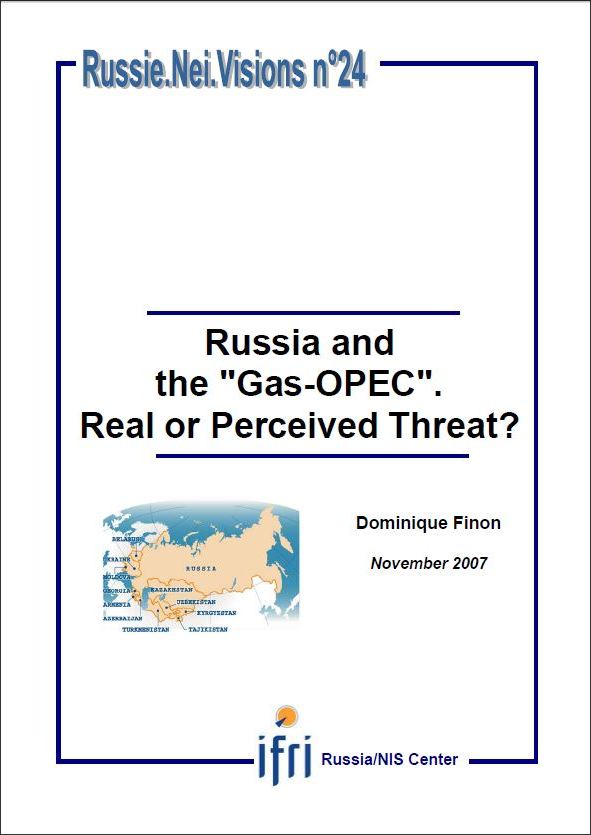Russia and the "Gas-OPEC". Real or Perceived Threat?

The threat of a gas-OPEC, waved around by certain big producers, has given rise to much fear in consuming countries. The behavior of Russia, a key exporter, has made it seem as though gas sales could be used as a political weapon. In truth, the creation of an entente between exporting countries is not technically feasible. What is more, Russia remains reticent to join any association in order not to limit its room for maneuver. Seeking to dominate the world market, it has singed a certain number of agreements with other big producers. Nevertheless, the capitalistic constraints of the gas market jeopardize the chances of long-term coordination, which is incompatible with short-term political interests.
Download the full analysis
This page contains only a summary of our work. If you would like to have access to all the information from our research on the subject, you can download the full version in PDF format.
Russia and the "Gas-OPEC". Real or Perceived Threat?
Related centers and programs
Discover our other research centers and programsFind out more
Discover all our analysesRussia, the Palestinians and Gaza: Adjustments after October 7th
The Soviet Union (USSR), and subsequently the Russian Federation as its internationally recognized legal successor, has consistently sought to play a visible role in efforts to resolve the Israeli-Palestinian conflict.
Deathonomics: The Social, Political, and Economic Costs of War in Russia
The report attempts to outline and examine a truly new phenomenon in Russian society, dubbed “deathonomics”—the making of a mercenary army against the backdrop of the Kremlin’s war in Ukraine, eventually replacing both the Soviet (conscript) and early new Russian (contract) armies. It notes that, by the end of 2023, this trend had turned the military service into one of the highest-paying professions in the country, something not seen in Russia on such a scale since the late 17th century.
Russia's Asia Strategy: Bolstering the Eagle's Eastern Wing
Among Russia’s strategic priorities, Asia traditionally played a secondary role compared to the West. In the mid-1990s, then Foreign Minister Yevgeny Primakov initiated a rapprochement with China and India. Then, in 2014, deteriorating relations between Russia and the West prompted Moscow to begin its “great pivot to the East”.
Kazakhstan After the Double Shock of 2022: Political, Economic and Military Consequences
The year 2022 represented a dual shock for Kazakhstan. In January, the country faced its most severe political crisis since independence, followed in February by Russia’s full-scale invasion of Ukraine, which cast uncertainty over the borders of post-Soviet states. These consecutive crises profoundly shaped Kazakhstan’s domestic and foreign policy.











